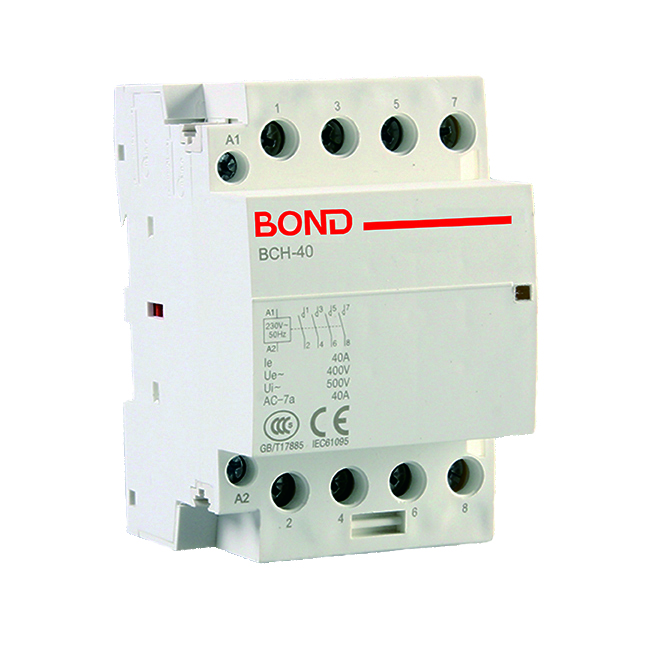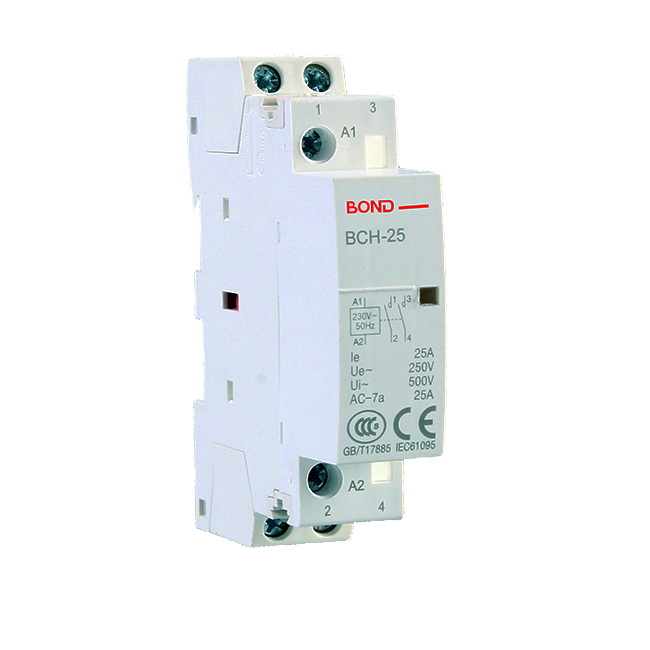BCH series AC Contactor is widely used for household electrical appliances control. Modular AC Contactor is used for remote control switch on and switch off the household electrical appliances which no inductance or with lower inductance loading. Such as electromagnetic oven, motors and other electrical appliances.
Modular AC Contactor mainly used in AC50Hz/60Hz,rated voltage to 400V,rated current of power system to 100A,AC-1,AC-7a (in no inductance or lower inductance load, resistance furnace, household appliances and similar lower inductance load) categories. Long distance switch and control circuit. House use AC Contactor is not used for breaking short circuit current, so it is necessary to choose suitable circuit protection electrical equipment for short circuit protection.


Modular AC Contactor,Modular Contactor,Auto Modular AC Contactor,Manual Modular AC Contactors
Ningbo Bond Industrial Electric Co., Ltd. , https://www.bondelectro.com